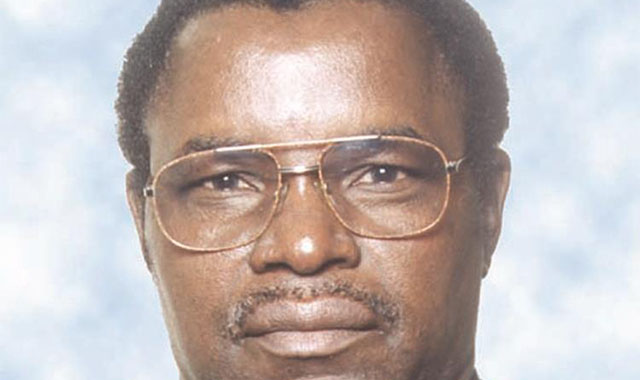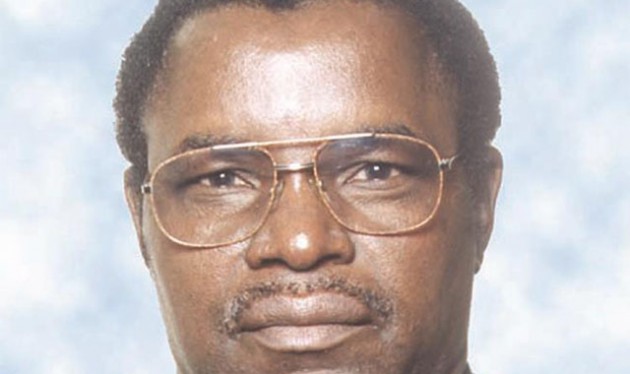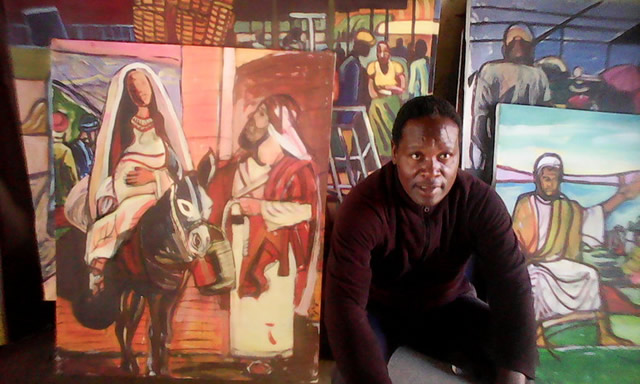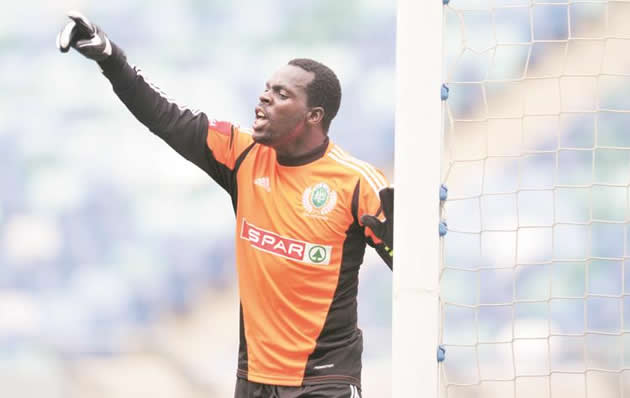Obituary – Sam Mumbengegwi: Educator till last breath


Cde Mumbengegwi
His consistency, persistence and loyalty to the party saw him holding various high level positions in the party and Government. He was a courageous, patriotic and results-oriented team player who was open to debating political and governance issues.
Correspondent
The late Dr Samuel Creighton Mumbengegwi was born on October 23, 1942 in Chivi, Masvingo Province. He was born to Davis Chiwandire Mumbengegwi and Shuvai Zivaidzo Mumbengegwi.
He was the eldest son in a big family.
He leaves behind Mrs Salina Mumbengegwi, five children and eight grandchildren.
Cde Mumbengegwi attended Mukotosi Primary School from Sub A to Standard 3 between 1951 and 1955.
In 1956 he moved to Grasham Primary School in Zvishavane for his Standard 4.
His next port of call was Siwoza Primary School, Zvishavane, from 1957 to 1958 for his Standard 5 and 6.
Cde Mumbengegwi then went to Dadaya Mission for Forms 1 and 2, as well as a two-year teacher training course from 1959 to 1962.
Cde Mumbengegwi moved to Matabeleland South Province where he enrolled for his Ordinary Level studies at Solusi High School from 1963 to 1964.
On successful completion of his O’ Level, he went on to study A’ Level privately, and started teaching at Shurugwi Railway Block School in 1965.
Cde Mumbengegwi read for a Bachelor of Arts degree at the University of Rhodesia from 1969 to 1971, followed by a Graduate Certificate in Education (1974), Diploma in Education (1977), Master of Education Degree in Curriculum Studies (1978), and a Doctor of Philosophy (D. Phil) from the University of Zimbabwe (1989).
The title of his D. Phil was “An Analytical Investigation into the Major Factors that Influenced the Planning and Development of the Education System in Zimbabwe from 1965- 1985: Comparative Study of Colonial and Post Colonial Trends.”
In 1970, Cde Mumbengegwi joined the student body of the then University of Rhodesia, from which platform he intensified his activism in the fight for independence.
Between 1970 and 1971, Cde Mumbengegwi participated in protests led by the current Permanent Secretary for Higher and Tertiary Education, Science and Technology Development, Dr Machivenyika Mapuranga; the late Special Disability Advisor in the Office of the President and Cabinet, Brigadier-General (Rtd) Felix Muchemwa; former Permanent Secretary in the Ministry of Education, Dr Thompson Tsodzo, together with the late Zanu-PF Politburo members, Cdes Witness Mangwende and David Karimanzira, among others.
In 1972, Cde Mumbengegwi campaigned vigorously against the Pearce Commission proposals and mobilised for the rejection of that Commission.
In 1972, Cde Mumbengegwi joined Mashoko Secondary School in Bikita District as a headmaster until 1977 when he joined Fletcher High School in Gweru as a teacher.
He left Mashoko Secondary School due to harassment and threats from the Rhodesian security and military personnel because of his activism in support of the freedom fighters, and found himself at Fletcher High School in 1977, where he taught until 1978.
During that period, the war had intensified and the Smith regime introduced a call-up or forced conscription of school leavers.
Cde Mumbengegwi used his class time to decampaign that Call-Up policy, which led to the exodus of students from Fletcher High School to join the liberation struggle.
Cde Mumbengegwi’s activism became known to the Fletcher High School Headmaster who reported the activities of Cde Mumbengegwi to the authorities in the then Salisbury.
The headmaster further singled out Cde Mumbengegwi and a few others, and recommended that they be blacklisted from teaching in all government schools.
Resultantly, Cde Mumbengegwi was expelled from the school in 1978.
During his tenure at both Mashoko and Fletcher High Schools, Cde Mumbengegwi was under surveillance from Rhodesian security personnel.
As the war intensified, Cde Mumbengegwi and other teachers formed an underground political cell at Fletcher High School comprised of Ronnie Nyandoro, Grey Chibanda and one Mungwangi, wherein the deceased was the Secretary for Finance.
This cell became a rallying point for political education aimed at mobilising the masses for the Party.
Together with others, Cde Mumbengegwi carried out mobilisation activities in support of the party and the liberation struggle, where they used the slogan “Iwe neni tine basa”.
Cde Mumbengegwi was, in the field of war collaborators, a collaborator par excellence.
In his role as a war collaborator, Cde Mumbengegwi worked closely with Air Marshal (Rtd) Henry Muchena, among other decorated cadres, from 1976 onwards.
Cde Muchena was a Sectorial Commander in Gaza Province.
Other comrades included the now Major General (Retired) Gibson Mashingaidze and Comrade Nylon, to mention a few.
At the Morgenster College political cell, Cde Mumbengegwi was responsible for mobilisation of resources for the freedom fighters, where he would contribute $500 per month from his salary and other activities.
Cde Mumbengegwi was thus part of a dedicated team that included Cde Chiwewe, Cde Mhungu, Cde Bimha, Cdes Mr and Mrs Muzvidziwa, Cde Mandebvu, the late Cde Mutero and Mrs Mutero, the late Dr Mazorodze and wife, Cde Chigudu and wife, Cdes Danidzai Makamure and his late wife.
This was a vibrant community around Morgenster, which strongly supported the liberation struggle in cash and kind.
At the peak of the war in 1979, all established political cells in Masvingo had to network, and their point of command was at the late national hero, Dr Mazorodze’s surgery in Mucheke.
These included the ones led by, among others, Dr Mazorodze, Dr Muzvidziwa, Cdes Mutero, Chademana, Nolan Makombe, Mandava, Charles Musvongwe, Chigudu, Nhungu and Pastors Bimha and Mandebvu.
The intensity of the liberation war that same year saw Morgenster Mission closing its doors, and Cde Mumbengegwi was then accommodated at Mkoba Teachers’ College in Gweru.
From 1978 to 1979, Cde Mumbengegwi was assigned to spread the message to ex-freedom fighters in Masvingo and Gweru.
It was during this time that he worked more extensively with Cdes Dominic Chinenge (the current Commander Defence Forces), Agneu Kambewu, Charles Munyoro and Patiripakashata, among others who were involved in the demobilisation exercise.
Cde Mumbengegwi donated personal effects, his vehicle in particular, for use by combatants in an effort to strengthen Party structures in Masvingo Province.
He also used to move medical supplies and undertook the evacuation of wounded comrades.
Cde Mumbengegwi provided that important support which eventually resulted in the Party winning overwhelmingly, the Masvingo vote.
The winning of the then Victoria Province would largely be attributed to the tireless efforts made by the late Cde Mumbengegwi and his fellow war collaborators.
Cde Mumbengegwi created an enabling environment to defeat the Rhodesian forces and the infamous Muzorewa’s Auxiliary forces.
As a war collaborator, he sacrificed his time and resources, courting danger in the process, until all comrades were integrated either into the Zimbabwe National Army, Air Force of Zimbabwe and other Government departments.
After independence, Cde Mumbengegwi was elected Political Commissar in Borrowdale 1 District of Zanu-PF in Harare from 1981 to 1993.
From 1997 to 2000 he served as a member of the Provincial Executive of Zanu-PF in Masvingo Province, where he held the post of Provincial Chairperson between 2002 and 2006.
He served Masvingo Province with distinction, and his leadership abilities in the Province prepared him for even greater national responsibilities.
He became a member of the Party’s Central Committee from 2004 to 2008, and was made a member of the National Consultative Assembly (NCA) from 2009 until the time of his untimely death.
Dr Mumbengegwi served as Member of Parliament for Chivi North Constituency from 2000 to 2005, and as Senator for Chivi-Mwenezi Constituency from 2005-2008.
In Cabinet, he held the portfolios of Minister of Higher Education and Technology (2002-2003); Minister of Industry and International Trade (2003 – 2004), Minister of State for Indigenisation and Empowerment in the Office of the President (2005 – 2006); and Minister of Finance (2007-2008).
By virtue of his being Minister of Finance, Cde Mumbengegwi also held the portfolios of Governor of the International Monetary Fund (IMF) and the World Bank (WB); Chairman of the Preferential Trade Area (PTA) Bank and Chairman of the Eastern and Southern Africa Anti Money Laundering Group (ESAAMLG).
Cde Mumbengegwi was involved in the creation of the Ministry of Higher Education.
This ministry was created to bring tertiary education under one ministry.
Previously, Technical and Vocational Education were under the Ministry of Labour, hence the curricula changes that took place in Teachers’ Colleges did not apply to Technical Colleges. Cde Mumbengegwi worked tirelessly to harmonise the operations within the education sector.
An outstanding contribution to education by the late Cde Mumbengegwi was his co-authorship with Cde Chiwewe of a document in 1980 which paved the way for the foundation of the Zimbabwe Integrated National Teacher Education Course (Zintec) system of teacher training.
The document, which revolutionised the Education sector in Zimbabwe, was adopted by former Ministers Dzingai Mutumbuka and Fay Chung.
This effort, among many others in the field of Education, clearly position Cde Mumbengegwi at the centre of the development of the Zimbabwe education system as we know it today.
Further, Cde Mumbengegwi was also part of the Nziramasanga Commission.
His consistency, persistence and loyalty to the party saw him holding various high level positions in the party and Government.
He was a courageous, patriotic and results-oriented team player who was open to debating political and governance issues. Zanu-PF has lost a dedicated Cde whose illustrious career greatly contributed to what Zimbabwe is today.
May his soul rest in eternal peace.







Comments